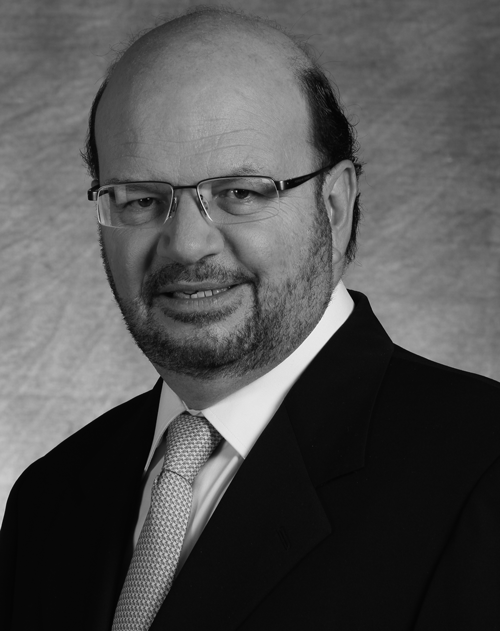TTR Dealmaker Q&A
April, 2015
Crown Holdings acquires Empaque from Heineken
Daniel Del Rio
Basham, Ringe & Correa
Q: Clearly this was an attractive asset that generated healthy cash flow. Why sell it?
A: The strategy for Heineken was to focus more on the main activity of selling beer, and that’s the reason for disposing of this asset, even though according to the strategy of the previous owners, it made sense to have the containers within the production lines. Though it was a good company, Heineken preferred to have someone else supply the cans and bottles rather than continuing to manage this kind of operation.
“Though it was a good company, Heineken preferred to have someone else supply the cans and bottles rather than continuing to manage this kind of operation”
Q: Were there other suitors in the sale process?
A: We know there were several people interested. That aspect of the deal was managed directly and very confidentially by the people representing Heineken.
Q: Why was Crown Holdings the best buyer for this asset?
A: Crown was looking to position itself better in the Mexican market and saw a very good opportunity. Crown has been in Mexico for a long time and I have been representing the company for the past 25 years. It’s an excellent company, they’ve had good market share, and this was a good opportunity to increase that participation within the Mexican market. Crown has worldwide operations, but it is very much interested in Latin America. Crown is very forward looking and committed for the long-term. It has been an excellent client for us and takes many things into consideration, including the labor force, which they try to maintain. These kind of projects are the ones we like in Mexico, where people are very much committed to good projects, to continue to maintain or increase jobs in Mexico, to continue to make investments.
Q: Why was this asset an attractive acquisition for Crown?
A: You have the asset and you also have the client. This is a product that Heineken requires. When you’re talking about cans and bottles, you can ship them, but it’s much better and more economical to have manufacturing facilities next to your customers rather than having to ship those products, which at the end of the day is burdensome economically. These Heineken companies held under Empaque were producing basically for Heineken production. By buying these assets you have the opportunity to continue to supply these products to the customer and also the customer was very much interested in selling to someone that would continue supplying, because this is a very important asset in order for them to produce and sell beer.
Q: Is there any restriction that would prevent Crown from supplying other clients?
A: No. There are no restrictions on Crown that would prevent it from selling to other customers. Crown will continue to supply Heineken. Actually Crown is going to be building a new manufacturing facility in Monterrey. It’s more or less associated with this transaction, and it sees an opportunity to increase market share in Mexico generally. Crown’s products are not aimed specifically at brewers, it sells cans used for soda and food products, and closures also. I know the new plant is going to be a major investment, but so far I haven’t seen figures.
Q: What synergies did Crown have with other assets in Mexico?
A: It goes in line with what it had been doing in Mexico. The only difference is that Crown had been focusing on aluminum cans. With this acquisition it acquired SIVESA, a manufacturing facility for glass bottles in Veracruz, in addition to FAMOSA, the can and closures plants in Monterrey, Toluca and Ensenada. The glass business is new for Crown. It also acquired SISA, a silica mine in Veracruz that supplies the raw material for the glass as part of the package. This was also very interesting.
Q: How did Basham land this mandate?
A: We have been working for Crown for many, many years. When this deal arose, it turned to Dechert, its legal advisor in NY and Philadelphia, and to us. We have been working together with Dechert attorneys for many years on behalf of Crown.
“The glass business is new for Crown. It also acquired SISA, a silica mine in Veracruz that supplies the raw material for the glass as part of the package”
Q: In what areas did Basham demonstrate its strengths in this transaction?
A: Since this was a Mexican transaction, Dechert was bringing most of its experience in these kind of cross-border transactions, and Basham contributed also with this kind of experience as well as with all the details related to Mexican law. The most difficult part was trying to get authorization from Mexico’s antitrust regulators.
Q: What antitrust issues came into play?
A: Crown already had operations in Mexico, and Heineken also had significant market share in Mexico. We had to wait for antitrust approval, and especially for the can business, it required a very deep analysis of the market.
Q: What convinced regulators that the deal didn’t present a threat to competition?
A: This is not a business where if you have major market share you can impose your conditions. The conditions are established by the market. You have other big players in the field and your clients are big players, not just in the beer, so we’re not talking about small, vulnerable companies that would be subject to uncompetitive conditions.


